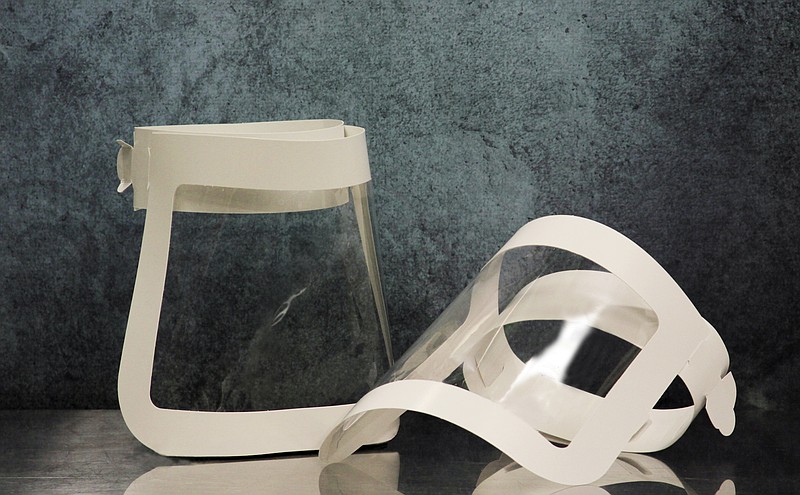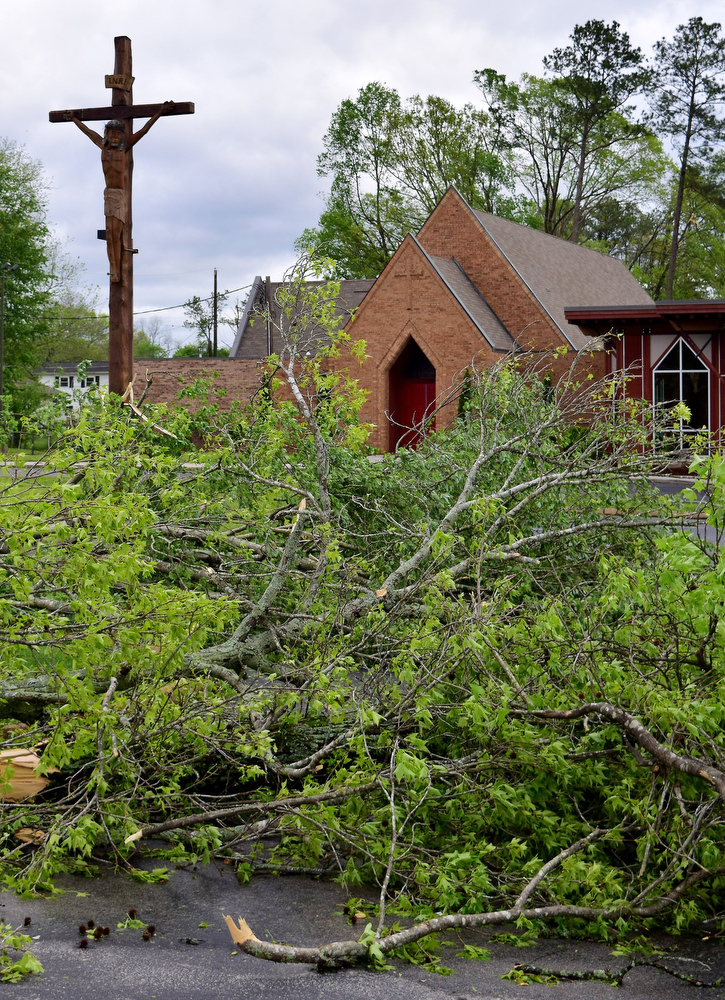Not long ago, walking through our garden, I found a nest of pine needles and twigs, domed together like a little hut in the southern corner of a rectangular planter, where mint grows each summer.
A sparrow's nest.
I peeked inside: tiny baby birds, mouths like O-O-O, looking like the most helpless creatures in our yard. I called my daughter; we gazed, smitten.
Coronavirus, for all its damnable qualities, has at least slowed me down: I notice small things in ways I did not before.
Each day, we'd tiptoe by, spying the babies and their protective mother, on guard, alert against a chaotic world. (You and me both, mama.)
Then came Easter. And the storms.
A day or so later, I checked on the nest.
I noticed buzzing flies. The nest seemed sunken.
I knew before I saw.
The baby birds - eyes shut, heads lolled, mouths no longer open - were dead.
Mother, gone.
Nest, falling apart.
"His eye is on the sparrow," the old hymn sings, "and I know He watches me."
This doesn't always seem true, does it?
Sometimes, babies die.
Nests collapse.
Pandemics come.
These are unspeakably hard times. A pandemic. Tornadoes. These are our Ecclesiastes days.
A time to mourn.
A time to be silent.
A time to be torn down.
If you want to curse God, I understand. If you want to drink the entire bottle, I understand. If you want to burrow down and never come out, I understand.
We are so fragile. Our tender bodies, our precious families, all that we have made: vulnerable, wisps, dust.
We've lost so much: lives, homes, livelihoods, stability, structures, businesses, paychecks, peace of mind, the pleasure of hugs, sports, easy trips to the store.
When does the tide turn? When does the long night end?
All we can do is what humans have always done. Inhale, exhale, endure.
We bury our dead. We grieve. We hope. We learn from our suffering. We continue to love.
We rebuild our nests, hoping, somehow and somewhere, that someone's eye is on us.
****
Attempting to slow COVID-19's spread, state and local leaders have done what once seemed impossible:
Drastically reduced our county jail's population.
Bail amounts have been reduced. Cash bail suspended. Nonviolent offenders released. Sentences suspended. Misdemeanor arrests reduced. Old warrants dismissed.
Our downtown jail, usually full at 505 inmates, held as few as 294 recently - "just over half of its capacity for the first time in at least 27 years," Rosana Hughes reported.
Pre-pandemic, the county jail was an overpopulated, human-rights-nightmare.
Yet within days, COVID-19 has solved our county's jail overpopulation crisis.
That means something remarkable: if local leaders can reduce our jail's population by 42 percent during a pandemic, then they can do the same thing after the pandemic.
The rules of the game?
They weren't really rules at all.
Release nonviolent offenders? Suspend cash bail? Reduce arrests?
If we can do it today, we can do it tomorrow.
"America's response to coronavirus pandemic has revealed a simple truth: So many policies that our elected officials have long told us were impossible and impractical were eminently possible and practical all along," writes filmmaker Astra Taylor in Politico.com.
Turns out, we don't have to evict people, Taylor writes. Don't have to shut off electricity or water. We can house homeless folks. We can end evictions.
"Paid sick leave could've been a right for all workers; paying your mortgage late didn't need to lead to foreclosure; and debtors could've been granted relief," she writes.
If we can convert the Alstom plant into a makeshift hospital, then why can't we convert one-third of downtown apartments into affordable housing?
If we can raise some $1 million for coronavirus relief, then why can't we create a stronger safety net for our service industry workers?
If we can do these merciful things today, why can't we do them tomorrow?
****
Since the pandemic hit, former U.S. Sen. Bob Corker, back in town, has been working in ways large and small to alleviate the coronavirus damage for our region. Every time we speak, I am reassured; Corker continues to be one of our most effective and wisest Chattanoogans.
He's spoken countless times to business and corporate leaders; those conversations have convinced him of one certain thing.
"I am convinced that they're going to have to put in place protocols that cause their employees to feel safer coming to work than staying at home," he said Friday.
It's true. Protocols that would give businesses the safe confidence to reopen would be a game-changer for Chattanooga.
"Once that can be accomplished, they'll be able to bring employees back to work," Corker said.
David Cook writes a Sunday column and can be reached at dcook@timesfreepress.com.

